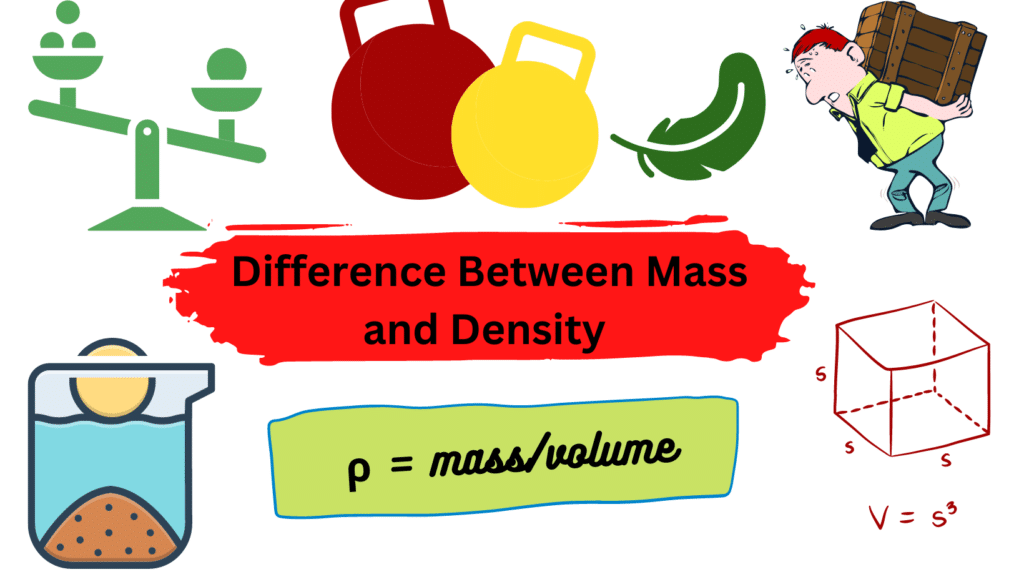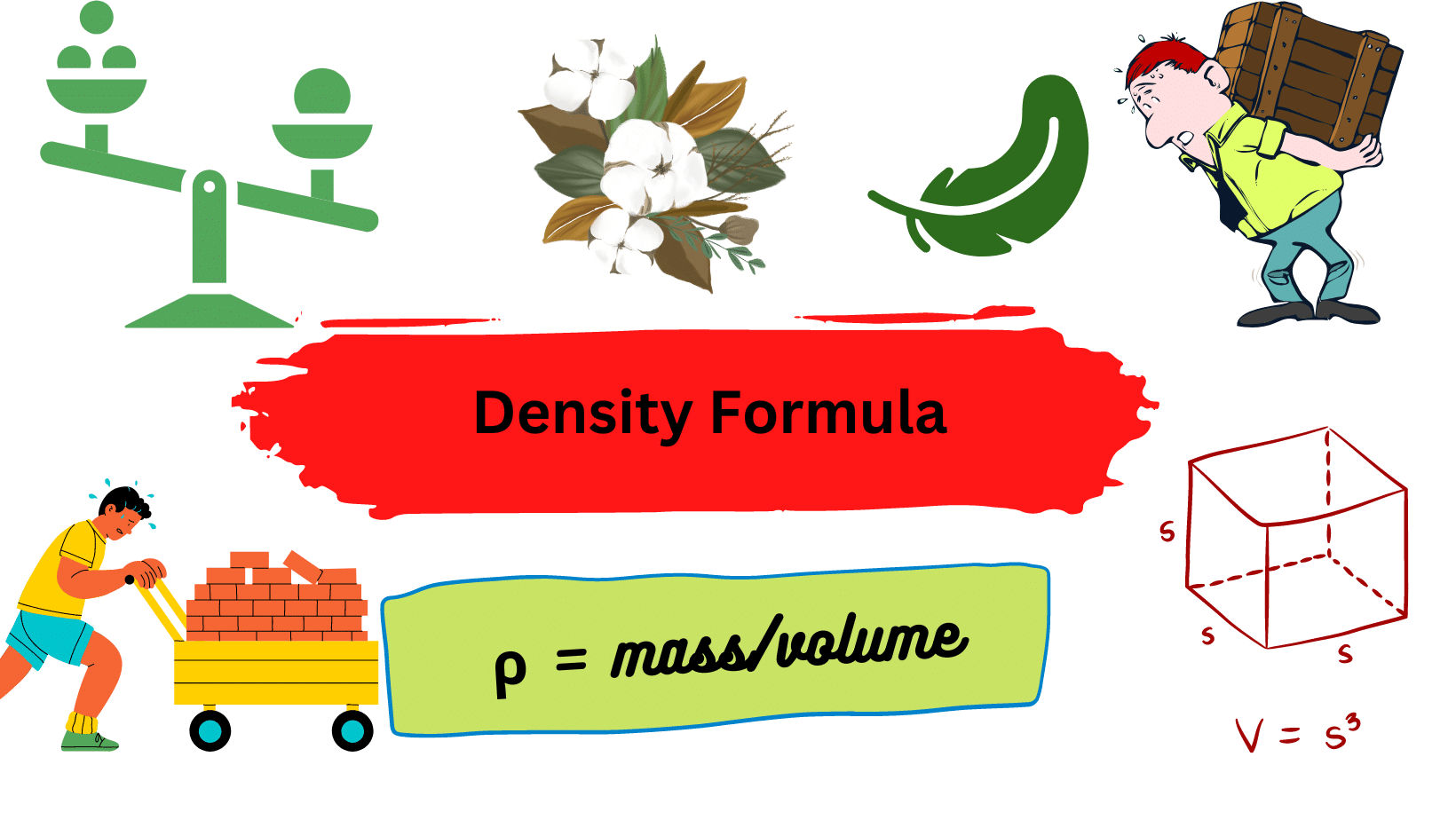Mass is the quantity of matter contained in an object, while volume is the measure of space occupied by the object. The ratio of mass to volume is known as density.
Some of the key differences between mass and density are given in the table below.

| Mass | Density | |
| Definition | Amount of matter contained in an object | In material, density refers to the closeness of the atoms, or how densely atoms are packed. |
| Property | Extrinsic | Intrinsic |
| SI unit | Kg | Kg/m3 |
Table of Contents
Definition of Density
The quantity of mass present in a substance for a given volume is referred to as its density. It is the fundamental property of a substance that explains the relationship between mass and volume. It defines how tightly an object’s molecules are packed into a particular amount of space.
Definition of Mass
A body’s mass is the amount of matter it possesses, whereas its weight is equal to the force with which the earth pulls it. Mass, unlike weight, is a scalar quantity whose value can never be zero.
Difference between Mass and Weight
The amount of matter in an object is measured by mass, whereas the effect of gravity on that mass is measured by weight. Gravity, in simple terms, gives weight to a mass. The following equation expresses the relationship between mass and weight:
Weight = mass x gravity
More Links
- BCl3 Lewis Structure in four simple steps - November 1, 2023
- PH3 Lewis Structure in four simple steps - October 8, 2023
- PF3 Lewis structure in four simple steps - September 24, 2023



